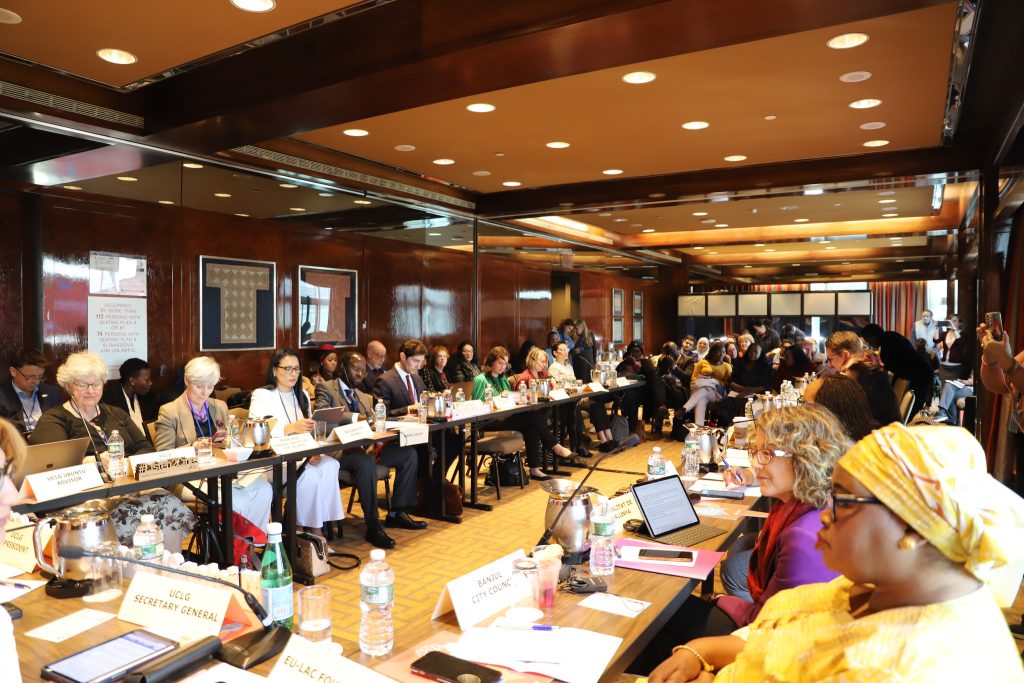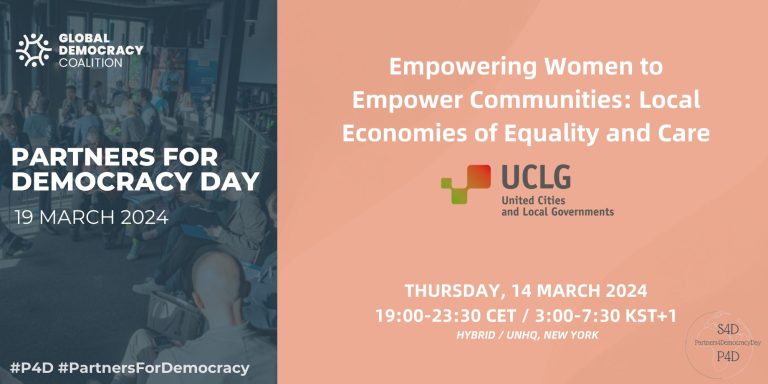Despite representing over half the world’s population, women and girls continue to be one of the populations most exposed to discrimination and violence of all forms, and disproportionately feel the impacts of rising global inequalities, climate emergencies and conflict. Inclusive public service provision and gender-sensitive policy making are crucial for effectively tackling inequalities and discrimination, and are a precondition for the achievement of the 2030 Agenda.
As governments closest to the people, cities and regions commit to guaranteeing all peoples’ rights and promote local economies of care and equality, through the provision of social protection systems and services like housing, healthcare, water, sanitation, food sovereignty, culture and education. Thus our equality-driven organized constituency of local and regional governments is driving SDG localization, and in particular gender equality, through the re-valuing and redistribution of care responsibilities, including across public institutions.
Care is key to building a new social contract rooted in feminist politics. Caring cities and territories address poverty not solely as an economic issue, but rather a multidimensional challenge that is articulated along the lines of race, class, gender, ability and other social markers of identity. The Global Feminist Municipalist Movement not only aims at empowering women in local political life, but also at sparkling changes in how we lead, and who we care for; it is about creating a new type of society, wherein local and regional governments can guarantee participatory policy-making and inclusive local public care and social protection systems.
As such, women and feminist local leaders must be empowered through multi-stakeholder collaboration and increased financing towards local and regional governments, alongside an increased say in decision-making mechanisms at the national and international levels.
In the context of the 68th Session of the Commission on the Status of Women, this 2024 CSW Local and Regional Governments’ Day event fostered a space in which local and regional governments, civil society, and key partners came together, to build upon shared priorities to localize the global agendas, and catalyze commitments to action: for financing inclusive, gender-sensitive and equitable local care systems and public services that ensure women, girls and people can thrive, and that no one and no place is left behind.
*For more information about this event, please contact Massimo Perrino (m.perrino@uclg.org).



